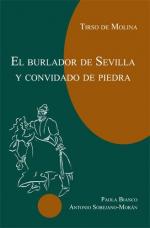|
This section contains 4,600 words (approx. 16 pages at 300 words per page) |

|
SOURCE: “Tirso de Molina's Idea of ‘Tragedia,’” in Bulletin of the Comediantes, Vol. 40, No. 1, Summer, 1988, pp. 41-52.
In the following essay, Darst concludes that de Molina's use of the word tragedia is more in line with Medieval Latin tradition than Aristotelian precepts.
Tirso de Molina's authorship of more than 80 extant dramas makes him the most prolific playwright of his time after Lope de Vega and Pedro Calderón de la Barca. Tirso's plays cover the entire spectrum of dramatic groups, which modern critics have labelled with generic names like comedias de costumbres, comedias de capa y espada, comedias de santos, comedias mitológicas, and comedias histórico-legendarias. His opinions about the theater of his time are well-known, because in his prose miscellany Cigarrales de Toledo (1624) he presented a brilliant defense of the comedia nueva and its privilege to imitate the contemporary mores and customs of the natural world...
|
This section contains 4,600 words (approx. 16 pages at 300 words per page) |

|


